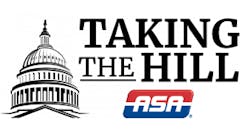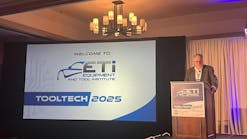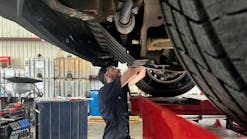House Vehicle Data Access Caucus will be essential in addressing critical concerns for all stakeholders
The ability to access vehicle data is essential to automotive repairers. As cars become more technologically advanced, vehicle data access issues only become more important. The issue of “right to repair” and vehicle data access continue to gain prominence in the national conversation and the legislative agenda.
In September 2022, U.S. Congressman Earl “Buddy” Carter (R-Ga.), a member of the U.S. House of Representatives Energy and Commerce Committee, established the House Vehicle Data Access Caucus (VDA Caucus). In February 2023, Carter joined with cosponsor Congressman Darren Soto (D-Fla.,) reestablishing the bipartisan House Vehicle Data Access Caucus for the 118th Congress. Both Congressmen Carter and Soto are members of the U.S. House Energy and Commerce Committee, which has jurisdiction over the vehicle data access issue.
The "Dear Colleague" letter stated:
“With tremendous advancements in technology over the last several years, vehicles are generating increasing amounts of data that can be accessed by a variety of sources ranging from in-vehicle ports to wireless transmission. As this vehicle data ecosystem evolves, there are growing questions about what data is accessible, to whom, and under what circumstances. Policy and practical issues that must be addressed include who “owns” or controls the vehicle data, who can expand or limit services offered, and who will ensure privacy and cybersecurity.”
This caucus will be essential in addressing critical data-access concerns for all stakeholders. The Automotive Service Association (ASA) worked with other stakeholders in the American Alliance for Vehicle Owners Rights (AAVOR) in meetings with Congressman Carter’s office on this issue.
In 2021, the Federal Trade Commission (FTC) released “Nixing the Fix: An FTC Report to Congress on Repair Restrictions”. This report stressed the importance of preserving consumer choice for third-party aftermarket repairs. Since then, the U.S. Congress has held multiple committee hearings to discuss issues surrounding repair restrictions and data access, in the automotive industry and others.
The “Right to Repair” movement has a history dating back over 30 years, since the 1990 Clean Air Act Amendments required that original equipment manufacturers (OEMs) provide emissions information to independent repair shops. In 2014, some aftermarket organizations signed a Memorandum of Understanding (MOU) with the Alliance of Automobile Manufacturers (OEMs) that stated:
“A manufacturer of motor vehicles sold in the United States shall make available for purchase by owners of motor vehicles manufactured by such manufacturer and by independent repair facilities the same diagnostic and repair information, including repair technical updates, that such manufacturer makes available to its dealers through the manufacturers internet-based diagnostic and repair information system or other electronically accessible manufacturer’s repair information system.”
This MOU did not account for the mainstream adoption of telematics technology in most modern vehicles, which is where the vehicle data access debate picks up today. In 2020, in Massachusetts, voters passed a “Right to Repair” ballot initiative in a 75 to 25 percent vote that would have codified the right for consumers to choose where they get their vehicles repaired. However, a legal challenge by the automakers has delayed implementation. Other states, such as Maine, are attempting to follow in Massachusetts’s lead with their own ballot initiatives.
In Aug. 2022, the California Air Resources Board (CARB) passed the Advanced Clean Cars II regulations. These regulations include a variety of initiatives to set California on the path to zero-emissions by 2035. Most notably for the vehicle data access debate and independent repair shops is the requirement that new zero-emission vehicles have a standardized data connector (such as an OBD-II port) and use standardized communication protocols.
The OBD-II port was originally intended as an access point for emissions information, as required by the 1990 Clean Air Act Amendments. There was concern from independent repair shops that new zero-emission vehicles would not have OBD-II ports since they do not have emissions data. Several states have already indicated that they would follow in California’s footsteps in adopting the Advanced Clean Cars II regulations.
Vehicle data access will continue to be an important issue for independent repair shops, and it is important that the voice of independent repairers is heard as a stakeholder in this issue. The Automotive Service Association (ASA) is encouraging shop owners to send a letter to their U.S. House of Representatives members encouraging them to join the newly established Vehicle Data Access Caucus. Send a letter to your representative using this link.



